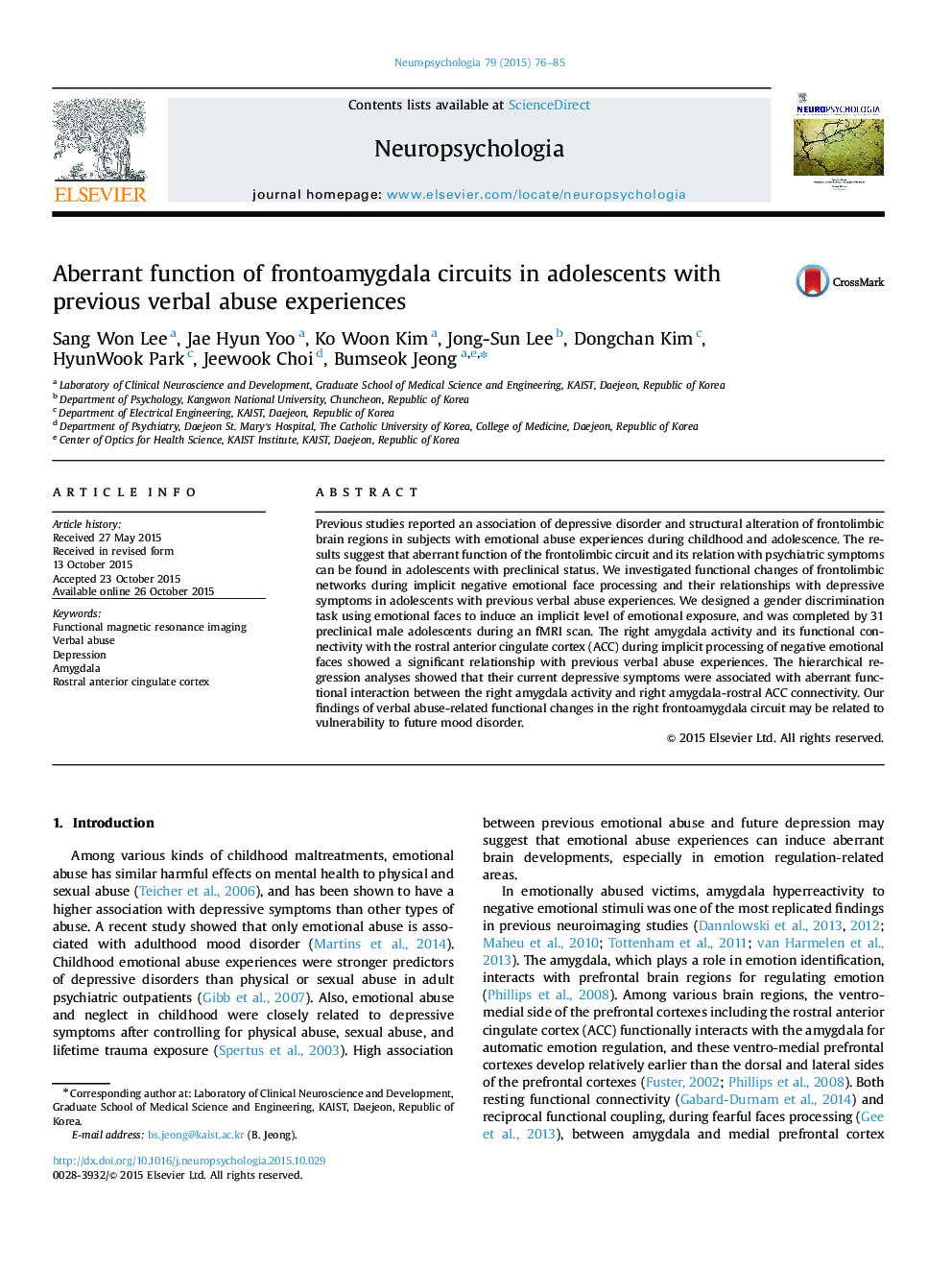| Article ID | Journal | Published Year | Pages | File Type |
|---|---|---|---|---|
| 944741 | Neuropsychologia | 2015 | 10 Pages |
•We measure the brain activity during processing of emotional faces using fMRI.•The effects of verbal abuse (VA) experience on the brain network were investigated.•VA was related to high amygdala activity and low amygdala-ACC connectivity.•The interaction (the activity by connectivity) was related to depressive symptoms.•VA-related aberrant frontoamygdala circuit can be an early marker for depression.
Previous studies reported an association of depressive disorder and structural alteration of frontolimbic brain regions in subjects with emotional abuse experiences during childhood and adolescence. The results suggest that aberrant function of the frontolimbic circuit and its relation with psychiatric symptoms can be found in adolescents with preclinical status. We investigated functional changes of frontolimbic networks during implicit negative emotional face processing and their relationships with depressive symptoms in adolescents with previous verbal abuse experiences. We designed a gender discrimination task using emotional faces to induce an implicit level of emotional exposure, and was completed by 31 preclinical male adolescents during an fMRI scan. The right amygdala activity and its functional connectivity with the rostral anterior cingulate cortex (ACC) during implicit processing of negative emotional faces showed a significant relationship with previous verbal abuse experiences. The hierarchical regression analyses showed that their current depressive symptoms were associated with aberrant functional interaction between the right amygdala activity and right amygdala-rostral ACC connectivity. Our findings of verbal abuse-related functional changes in the right frontoamygdala circuit may be related to vulnerability to future mood disorder.
